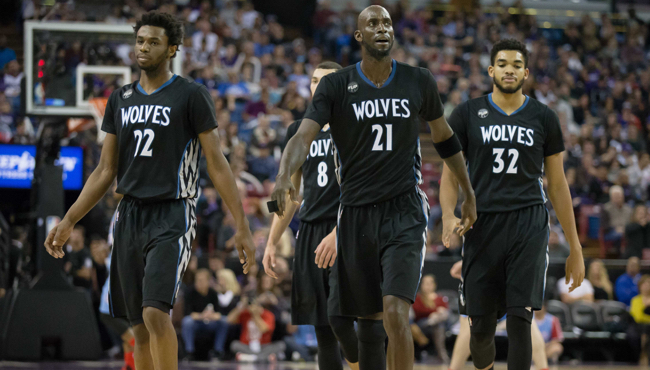Teenagers get into trouble. That’s just what they do. But not all teenagers are created equally. Some teenagers have the luxury of indulging in all sorts of perfectly normal teenage antics in relative obscurity and/or anonymity and are free to either learn from their mistakes or not and suffer the consequences of their actions without the added pressure of public or popular scrutiny.
Others are thrust into the spotlight at a very young age and have their every move subjected to a level of documentation, praise, scrutiny, and criticism that is nearly unfathomable to the rest of us. Philadelphia 76ers rookie Jahlil Okafor obviously fits the latter mold.
And while there is a fine line between acknowledging that boys will indeed be boys and making excuses for clearly questionable behavior, there is a line nonetheless. The other problem with trying to make sense of a situation like Okafor’s is that everyone’s an armchair psychologist all of the sudden.
Yet speculation as to the root cause of Okafor’s recent string of high-profile, law-bending incidences would be purely that: speculation. But there are clearly certain inescapable factors and variables that most would probably agree aren’t helping his situation any.
That’s a point that fellow Chicago native Jabari Parker brought up in a recent interview. Via Adi Joseph of The Sporting News:
“He’s fine,” Parker told Sporting News. “Everyone knows that he’s a good kid, exceptional kid. Sometimes we look at athletes as superheroes. We’ve got to be perfect all the time. But, you know, any ordinary Joe has a worse record than him. He’s been real exceptional. That’s not an excuse. I’m not saying that those mistakes are to be covered up, but he’s not the kid that was shown in those actions.”
“Most of it is just winning,” said Parker, 20. “When you’re losing, you think real negatively, and sometimes it may carry over. It’s the pressure. Winning takes care of it, and also experience helps, too.”
If hearing the 20-year-old Parker offer words of wisdom as the elder statesman in this scenario seems a little on the absurd side to you, then you’re not alone. But he has a valid point.
The former Illinois Mr. Basketball led Whitney Young to a high school championship during his senior year, then went on to win an NCAA Championship in his lone season at Duke. And as is so often the case that lottery-bound teams, as the name implies, get the pick of the lottery litter, he ended up not only a bad team, but on a bad team to end them all, a perpetually lottery-bound team with no immediate plans of being successful in the National Basketball Association. That’s a hard pill to swallow for such a fiercely-proud competitor such as Okafor.

So there’s frustration there, to be sure. But as so many critics have pointed out, at least some of that could have been mitigated by a veteran presence in the locker room. Think of the young Minnesota Timberwolves and the role Kevin Garnett has played in mentoring young talent, keeping them focused on the task at hand and teaching them how to be a professional both on and off the court or otherwise just keeping their time occupied with rookie hazing responsibilities. Young players, like Okafor or otherwise, need that type of guidance.
And though there isn’t a system of metrics for gauging the value of that type of role, the types of things we’re seeing out of Okafor in Philadelphia can be seen as a partial i
ndictment on the lack of veteran leadership in that particular locker room.
There’s also no clear indication about how the organization itself is going to handle Okafor’s situation. There’s been no talk of an internal investigation or any disciplinary actions, whether that would entails fines or suspension or, conversely, nothing at all, which is yet another sign of the organizational dysfunction.
What gets lost in all that talk about “trusting the process” is the human toll. At what point does Sam Hinkie – i.e. the poor man’s Dork Elvis – have to very seriously re-examine whether he’s asking too much of both the players he employs and the fans whose (quickly waning) support he depends on to stay viable? Maybe it’s past that time already.
(Via The Sporting News)
